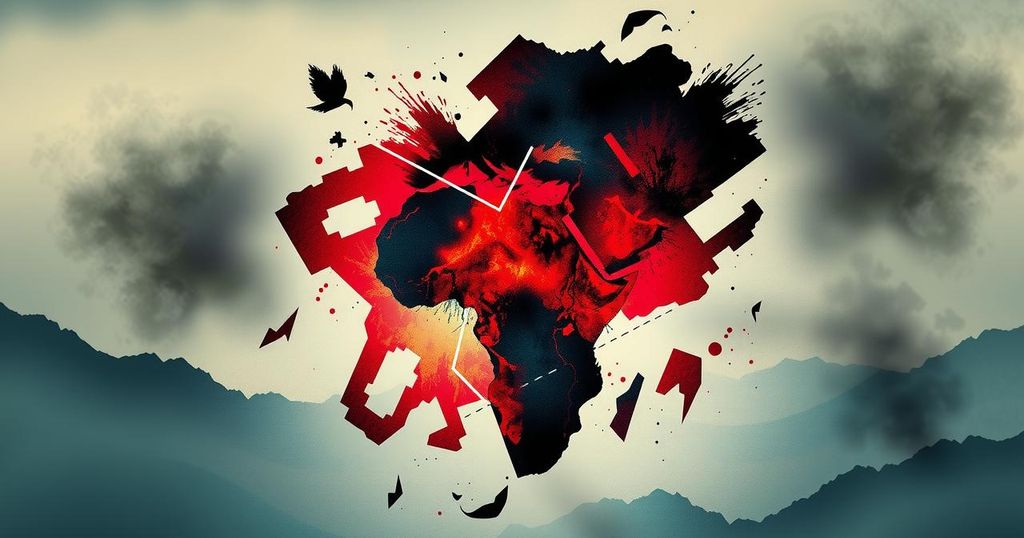DR Congo’s President Tshisekedi cuts his Davos trip short as the M23 rebel group advances, causing significant displacement and escalating violence. Over 400,000 individuals have fled due to intensified fighting, with fears Goma may fall. The UN warns of the potential for broader regional conflict amid allegations of Rwandan support for the rebels.
President Felix Tshisekedi of the Democratic Republic of Congo has abruptly ended his participation in the World Economic Forum in Davos due to the escalating conflict back home. The situation has deteriorated significantly, particularly in the eastern region, where the M23 rebel group, allegedly backed by Rwanda, has expanded its territorial control.
Since January, fighting has intensified, causing the displacement of over 400,000 individuals as the M23 has advanced closer to the provincial capital of Goma. Tshisekedi returned to his nation for urgent discussions with top officials concerning national security measures amidst this crisis.
Recent reports indicate that the M23 has seized the towns of Masisi and Minova, intensifying fears that Goma, a city of over one million people, may face capture. The town of Sake was reportedly taken by the rebels, although the Congolese army claimed to have repelled their attack, underscoring the volatile situation in the region.
The ongoing rebel advancement since 2021 has resulted in widespread displacement of civilians, many of whom are fleeing with essential belongings on their backs or cramming into overcrowded boats. Though there was a temporary decrease in hostilities last July, significant fighting resumed by October, further complicating the humanitarian crisis.
Amidst these developments, the United Nations and Congolese authorities emphasize that Rwanda is providing support to the M23, a claim that the Rwandan government neither confirms nor denies. UN Secretary-General Antonio Guterres has cautioned that the conflict has the potential to escalate into a larger regional war, urging for respect toward the sovereignty of the Democratic Republic of Congo and cessation of support to armed factions.
The dire circumstances in the eastern Democratic Republic of Congo highlight the urgent need for international attention and intervention to curtail the humanitarian impact of the conflict and to stabilize the region.
The Democratic Republic of Congo has long struggled with armed conflict, particularly in its eastern provinces, where numerous rebel groups operate. The M23, which resumed its hostilities in 2021 after a previous rebellion, is known to utilize support from external actors, including allegations of backing from nearby Rwanda. This ongoing strife has led to widespread displacement and a precarious humanitarian situation, further complicated by regional geopolitical dynamics.
The situation in the Democratic Republic of Congo represents a significant humanitarian crisis, characterized by escalating violence and displacement of civilians. With President Tshisekedi’s recent decision to prioritize security measures in the face of the advancing M23 rebels, the international community is being called upon to address these urgent issues. Furthermore, continued allegations of external support for the rebels place additional scrutiny on regional relations and the necessity for diplomatic intervention to restore stability.
Original Source: www.bbc.com






